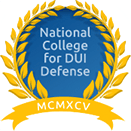Elizabeth NJ Joyriding Charge Defense Attorney
The offense of unlawful taking of means of conveyance arises most frequently in the context of “joyriding“. This term describes the situation where someone takes the car, truck or other form of motor vehicle of another person but does not have the intention to permanently deprive the owner of property. They are utilizing the item wrongfully and, in doing so, are exposed to a charge for unlawful taking of means of conveyance. If you have been charged with joyriding or for violating N.J.S.A. 2C:20-10 for any other reason, it is important that you contact an attorney at the Law Offices of Jonathan F. Marshall. This offense carries serious penalties that the former prosecutors and other skilled lawyers at our firm can help you effectively defend. In fact, our attorneys have over 100 years of collective experience defending charges in Elizabeth, Scotch Plains, Plainfield, Linden, Roselle and elsewhere in Union County. To discuss the facts of your theft case with a lawyer on our team, contact our office anytime 24/7 for a free consultation.
Charged With Unlawful Taking of Means of Conveyance
Whenever someone unlawfully takes or withholds the motor vehicle of another person temporarily, they can be charged with unlawful taking of means of conveyance (a.k.a. joyriding). As previously stated, this offense is set forth at N.J.S.A. 2C:20-10 and provides that:
N.J.S.A. 2C:20-10. Unlawful taking of means of conveyance
a. A person commits a disorderly persons offense if, with purpose to withhold temporarily from the owner, he takes, operates, or exercises control over any means of conveyance, other than a motor vehicle, without consent of the owner or other person authorized to give consent. “Means of conveyance” includes but is not limited to motor vehicles, bicycles, motorized bicycles, boats, horses, vessels, surfboards, rafts, skimobiles, airplanes, trains, trams and trailers. It is an affirmative defense to prosecution under subsections a., b. and c. of this section that the actor reasonably believed that the owner or any other person authorized to give consent would have consented to the operation had he known of it.
b. A person commits a crime of the fourth degree if, with purpose to withhold temporarily from the owner, he takes, operates or exercises control over a motor vehicle without the consent of the owner or other person authorized to give consent.
c. A person commits a crime of the third degree if, with purpose to withhold temporarily from the owner, he takes, operates or exercises control over a motor vehicle without the consent of the owner or other person authorized to give consent and operates the motor vehicle in a manner that creates a risk of injury to any person or a risk of damage to property.
d. A person commits a crime of the fourth degree if he enters and rides in a motor vehicle knowing that the motor vehicle has been taken or is being operated without the consent of the owner or other person authorized to consent.
There are a wide range of vehicles that fall within this law. The most common of these is naturally an automobile although virtually any form of transportation could apply, including a boat, truck, trailer, motorcycle, quad or bicycle. There is a distinction in grading, however, depending on the type of transportation item involved. If the accused takes a car, truck or other motor vehicle, the violation is a fourth degree crime. This category of 2C:20-10 charge is enhanced to a third degree crime if the motor vehicle is operated in an manner which creates risk of injury to others or their property. Unlawful taking of means of conveyance of a transportation that is not a motor vehicle is a disorder persons offense.
Penalties. Fourth degree joyriding results in a fine of up to $10,000 and up to 18 months in prison. Third degree unlawful taking of means of conveyance carries penalties that include a fine of up to $15,000 and up to 5 years in prison. A disorderly persons offense for violating 2C:20-10 triggers a fine that can reach $1,000 and up to 6 months in the Union County Jail.
Elements of Offense. There are three elements of proof that must be established in order for someone to be convicted of joyriding/unlawful taking of means of conveyance. First, the accused must have taken, operated or exercised control over a mode of transportation. Second, the conduct must have been without the consent of the owner of the transportation. Third, the actor’s purpose must be to temporarily deprive the owner of the property. When the intention is to permanently deprive the owner of a motor vehicle, an automobile theft offense occurs as opposed to a joyriding.
Linden NJ Joyriding Car Theft Lawyer
Linden NJ recently ranked thirteen in terms of the top municipalities in New Jersey for car theft. It should not therefore come as a shocker that the city also has a high number of individuals arrested for joyriding (a.k.a. unlawful taking of means of conveyance) each year. If you were charged with joyriding in the City of Linden, City of Elizabeth, Union Township, Rahway or Kenilworth, a lawyer at the Law Offices of Jonathan F. Marshall is available immediately to speak to you in a free consultation. Our attorneys will invest their time and our firm’s 100 plus years of experience to insure that we are an adapt resource for you. Lawyers are available 24/7 at 908-272-1700.












